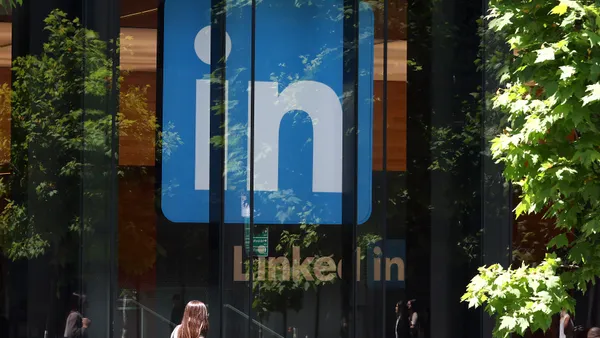Dive Brief:
- Job prospects for college graduates are finally seeing an uptick, after 10 years of unfavorable employment conditions following the 2007 recession, the Economic Policy Institute (EPI) reports. But in gathering demographic data on young adults ages 21 to 24, EPI found that the economy still has a long way to go to reach the "high-pressure" economy of the late 1990s and 2000.
- For young graduates, the unemployment rate hovers around 5.3%, more than a percentage point higher than the general unemployment rate. But the real issue for young graduates is the underemployment rate, currently at 11.1% — higher than it was in 2007 and "much higher" than it was in 2000, EPI reports.
- Wage-related data shows that young grads have seen "lackluster" pay growth, but men have had more luck than women; the gender wage gap for young college graduates widened between 2000 and 2018, from 11% to 14.7%. And wages for the general black population declined significantly during the Great Recession, saddling today’s young African-American college graduates with a 16.8% pay penalty compared to white college graduates.
Dive Insight:
Graduation season is approaching and from these stats, it appears employers have not yet fully tapped the potential of this cohort. As would-be hires, recent grads may not have all the technical qualifications recruiters are looking for, but they could be trained, mentored or made part of an apprenticeship program. Employers are increasingly relying on this tactic, hiring workers with the right soft skills and training on technical skills; the talent market is simply too tight.
Proactive employers may want to keep an eye on the potential pay disparities at play, however. The penalties for young female and African-American college graduates could set up a long-term lag in wages for both groups, which employers are increasingly under fire to check for and solve.
The data, generally, could provide HR professionals and recruiters with a detailed view of the labor market as it relates to young new college graduates and help them decide how best to hire and retain graduates as they roll out new recruitment strategies; in today's economy, employers are finding that old hiring strategies don't always work as well as they once did.












